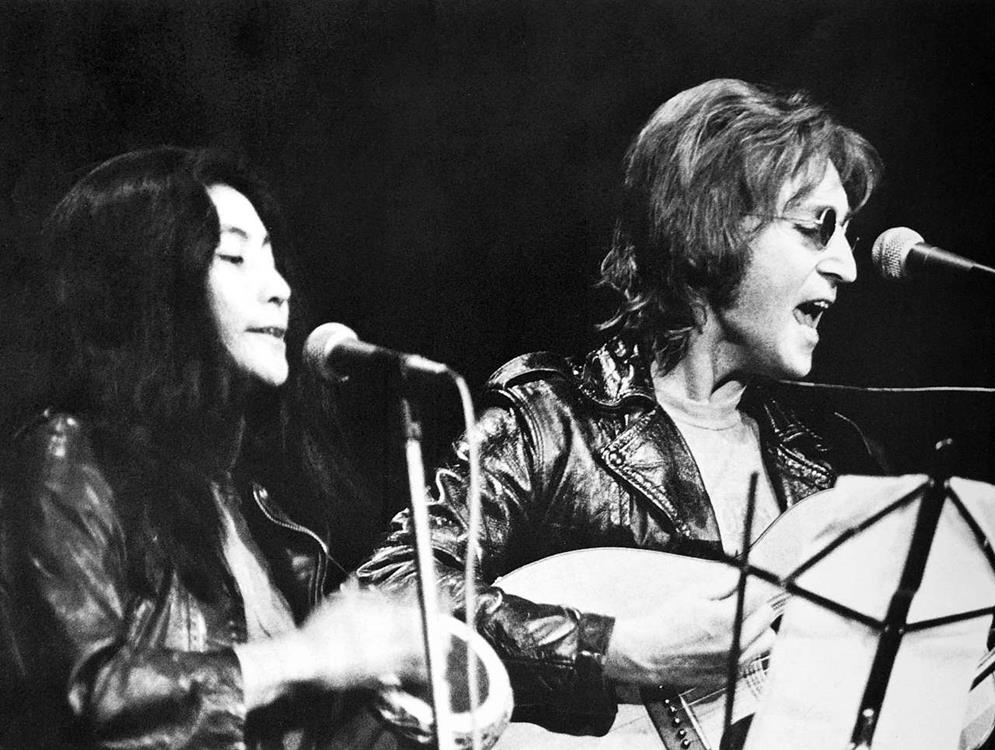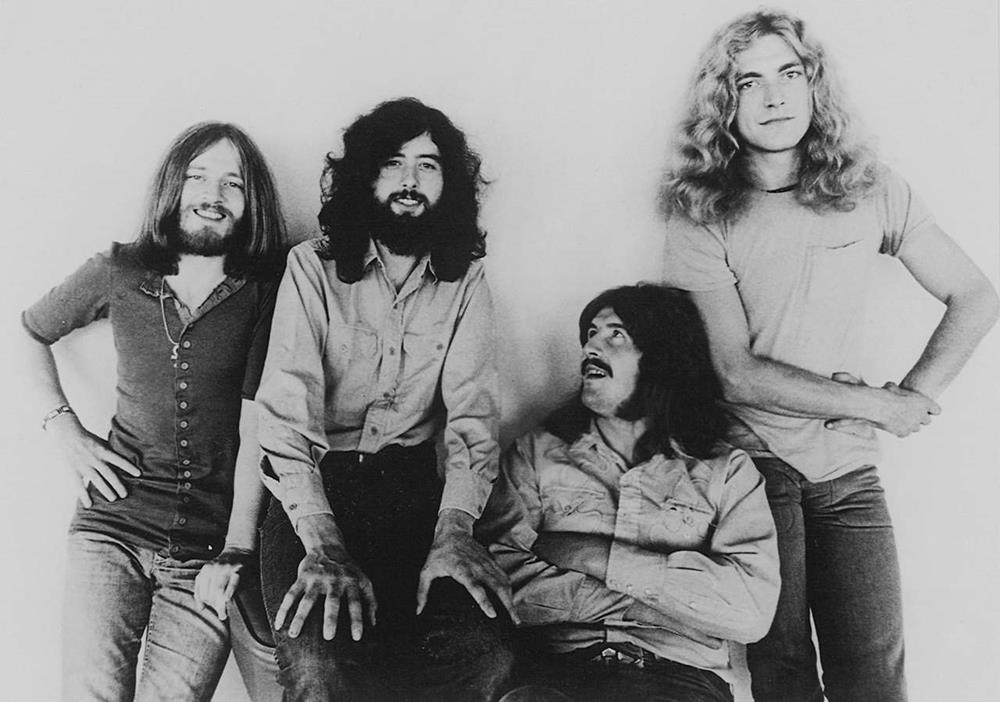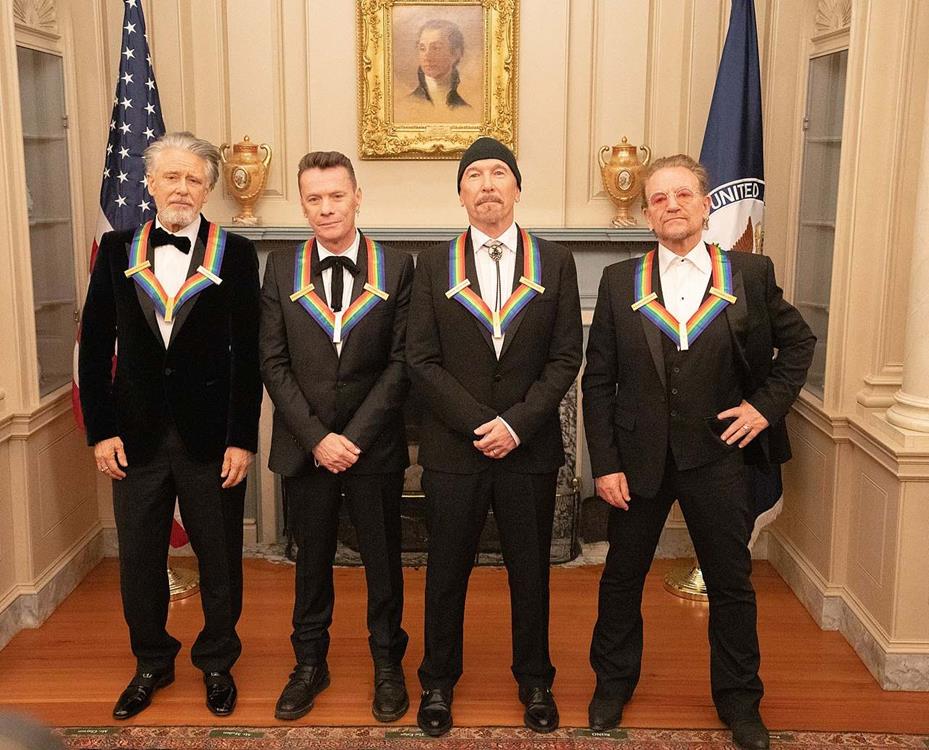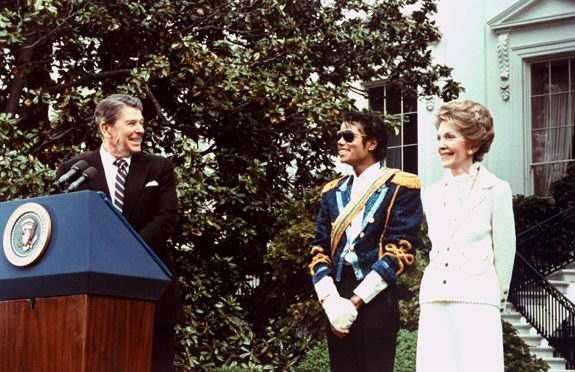Life in the 1980s was simpler compared to today. There was no internet to surf, no social media to scroll through, and blogs didn’t exist. Cell phones were huge and rare, and not many people owned one. These facts made the 1980s a special time for pop culture, seeing big changes in fashion and music. This was when MTV first hit our screens, changing how we experienced music. It was also a time when old-school vinyl records started to fade away, making room for electronic music and rap to take the stage.
Let’s take a look at some of the most memorable music moments from the 80s:
R.E.M Released Their First Single (1981)
In 1981, the American alternative rock band R.E.M. marked the beginning of their illustrious career with the release of their first single, “Radio Free Europe.” This debut single quickly became a standout track, gaining significant attention for its jangling guitars, mumbled lyrics, and distinctive sound that diverged from the mainstream music of the time.
“Radio Free Europe” not only signaled the emergence of a new voice in rock music but also laid the groundwork for the alternative genre’s rise to prominence in the following years. The song’s success on college radio stations helped R.E.M. secure a record deal, setting the stage for their ascent to becoming one of the most influential bands of their generation.
John Lennon is Assassinated (1980)
In a tragic event that shook the world, John Lennon, the iconic musician and former member of The Beatles, was assassinated on December 8, 1980. Lennon was shot by Mark David Chapman outside the Dakota, his New York City apartment building, as he returned home with his wife, Yoko Ono. This shocking act of violence ended the life of one of the most influential figures in music and cultural history.
Lennon’s death left a profound impact on fans across the globe, leading to widespread mourning and tributes. His music, messages of peace, and contributions to the world of art and activism continue to inspire generations, making the day of his assassination a somber moment in history that is remembered and honored by millions.
After John Bonham’s Unexpected Death, Led Zeppelin Breaks Up (1980)
In 1980, the music world was struck by tragedy when John Bonham, the legendary drummer of Led Zeppelin, unexpectedly passed away due to complications related to alcohol consumption. Bonham’s death marked not only the loss of one of rock music’s most revered drummers but also the end of Led Zeppelin as a band. Recognizing that Bonham was irreplaceable and integral to their sound and spirit, the remaining members of Led Zeppelin—Robert Plant, Jimmy Page, and John Paul Jones—decided to disband shortly after his death.
This decision underscored the profound impact Bonham had on the band’s identity and legacy. Led Zeppelin’s breakup marked the end of an era in rock music, leaving behind a monumental legacy that continues to influence musicians and fans alike.
MTV Begins Broadcasting (1981)
In 1981, a pivotal moment in music and cultural history occurred when Music Television (MTV) began broadcasting for the first time. Launching with the fittingly titled video “Video Killed the Radio Star” by The Buggles, MTV revolutionized how music was consumed and popularized the music video as an essential artistic component of an artist’s work. This new platform gave artists a visual stage to complement their musical creations, blending pop culture and music in unprecedented ways.
MTV quickly became a dominant force in the music industry, influencing fashion, dance moves, and the visual storytelling of music. It also played a crucial role in launching and amplifying the careers of many artists, making it an indelible part of the 1980s music scene and beyond.
‘The Breaks’ Becomes the First Certified Gold Record Rap Song (1980)
In 1980, “The Breaks” by Kurtis Blow made history as the first rap song to receive a certified gold record, signifying over half a million copies sold. This landmark achievement marked a turning point for rap music, propelling it from the fringes of music culture into the mainstream spotlight. “The Breaks” not only showcased the infectious rhythms and lyrical prowess that rap could offer but also demonstrated the genre’s commercial viability in a still-skeptical music industry.
Kurtis Blow’s success paved the way for future generations of rap artists, legitimizing rap as a significant and influential musical genre. This milestone is celebrated as a crucial moment in the evolution of hip-hop, highlighting its enduring appeal and cultural impact.
Grandmaster Flash & “The Message” Rocks America (1982)
In 1982, Grandmaster Flash and the Furious Five released “The Message,” a track that would forever change the landscape of hip-hop music. Unlike anything before it, “The Message” ventured beyond the party anthems that characterized early rap music, offering instead a stark narrative of life in urban America. With its famous refrain, “Don’t push me ’cause I’m close to the edge,” the song painted a vivid picture of the struggles and hardships faced by those living in poverty.
Its profound social commentary and innovative sound not only rocked America but also elevated hip-hop to a platform for profound cultural expression and critique. “The Message” is hailed as one of the most significant and influential songs in the history of rap music, underscoring the genre’s potential to articulate social issues and resonate with people far beyond the dance floor.
Madonna’s “Like a Virgin” Aired at the MTV Video Music Awards (1984)
In 1984, Madonna’s performance of “Like a Virgin” at the MTV Video Music Awards became one of the most iconic moments in music television history. Draped in a wedding gown and writhing atop a giant wedding cake, Madonna captured the world’s attention with her provocative and groundbreaking performance. This moment not only solidified her status as a pop culture icon but also showcased the MTV Video Music Awards as a platform where artists could push the boundaries of creativity and controversy.
“Like a Virgin” became synonymous with Madonna’s fearless persona and her knack for blending pop music with performance art. The performance was a pivotal point in Madonna’s career, catapulting her to superstardom and helping to define the MTV generation.
“Born In The USA” was Used by Ronald Regan for His Re-Election Campaign (1984)
In 1984, Bruce Springsteen’s “Born in the U.S.A.” found its way into the political arena when it was used by Ronald Reagan’s reelection campaign. The song, with its catchy chorus and patriotic title, was perceived by the Reagan campaign as an embodiment of American pride and resilience, making it an appealing addition to their campaign events. However, this appropriation sparked controversy, as the song’s lyrics actually narrate a critique of the American government’s treatment of Vietnam veterans and the hard realities faced by working-class Americans.
Springsteen, known for his thoughtful storytelling and commentary on social issues, was not consulted about the use of his song, leading to a public clarification of the song’s intended message. This incident highlighted the complexities of political endorsements in music and the importance of understanding a song’s deeper meanings.
Band-Aid Records “Do They Know It’s Christmas” (1984)
In 1984, the music world witnessed the creation of Band-Aid, a supergroup featuring some of the era’s biggest British and Irish music stars, who came together to record “Do They Know It’s Christmas?” The song was written by Bob Geldof and Midge Ure with the aim of raising awareness and funds to combat the devastating famine in Ethiopia. Released during the holiday season, the single quickly soared to the top of the charts, becoming one of the fastest-selling singles in UK history.
Its message of compassion and the call to action resonated globally, marking the beginning of a new era of charity singles and concerts in the music industry. The success of “Do They Know It’s Christmas?” not only provided much-needed relief to those suffering in Ethiopia but also demonstrated the powerful role music could play in mobilizing the public for a humanitarian cause.
U2 Releases “The Joshua Tree” (1987)
In 1987, U2 released “The Joshua Tree,” an album that would become a milestone in their career and a defining sound of the era. With its evocative blend of rock, roots, and spiritual themes, the album captured the imagination of listeners worldwide. It features hits like “With or Without You,” “I Still Haven’t Found What I’m Looking For,” “Where the Streets Have No Name,” and “The Joshua Tree,” which propelled U2 to international superstardom.
Its deeply resonant lyrics and expansive soundscapes reflected both personal introspection and commentary on social and political issues, earning critical acclaim and a massive fan following. “The Joshua Tree” not only solidified U2’s position as one of the world’s leading rock bands but also marked a significant moment in music history, symbolizing the power of music to connect, inspire, and provoke thought.
N.W.A. Releases “Straight Outta Compton” (1988)
In 1988, N.W.A. released “Straight Outta Compton,” a groundbreaking album that would forever alter the landscape of hip-hop and popular music. This seminal work introduced the world to the raw intensity of gangsta rap, delivering unflinching narratives about life in South Central Los Angeles. With its candid depictions of police brutality, racism, and poverty, “Straight Outta Compton” gave a voice to marginalized communities and shed light on issues that were often ignored by mainstream media.
Tracks like “Fuck tha Police” sparked controversy and debate but also prompted discussions about freedom of speech and the realities of inner-city life. N.W.A.’s bold storytelling and aggressive beats challenged societal norms and paved the way for future artists in hip-hop and beyond, making “Straight Outta Compton” a pivotal moment in music history.
Public Enemy Releases “It Takes a Nation of Millions to Hold Us Back” (1988)
In 1988, Public Enemy released “It Takes a Nation of Millions to Hold Us Back,” an album that revolutionized hip-hop with its politically charged lyrics and innovative production. This sophomore effort from Public Enemy was more than just music; it was a call to action, challenging listeners to confront social injustices and racial inequality. With tracks like “Bring the Noise” and “Don’t Believe the Hype,” the album blended powerful messages with the dense, chaotic soundscapes crafted by the Bomb Squad, creating a sense of urgency and rebellion.
“It Takes a Nation of Millions to Hold Us Back” not only cemented Public Enemy’s place in the annals of hip-hop history but also influenced countless artists and activists, proving that music could be a formidable tool for change. The album’s impact was profound, setting a new standard for social commentary in music and affirming hip-hop’s role as a voice for the voiceless.
Michael Jackson’s Album “Thriller” (1982) Became the Best-Selling Album of All Time
In 1982, Michael Jackson released “Thriller,” an album that would become the best-selling album of all time, a title it still proudly holds. This monumental record blended pop, post-disco, funk, and rock music, showcasing Jackson’s unparalleled talent and versatility. “Thriller” featured an array of hit singles, including “Billie Jean,” “Beat It,” and the iconic title track, complete with its groundbreaking music video. The album’s success was astronomical, breaking racial barriers on MTV and changing the music industry’s approach to marketing and production.
“Thriller” not only solidified Michael Jackson’s status as the King of Pop but also influenced countless artists across various music genres. Its impact on pop culture, along with its continued commercial success, has made “Thriller” an enduring symbol of the 1980s music scene and a landmark achievement in music history.
Conclusion
The 1980s was a decade of incredible musical diversity and innovation, leaving an indelible mark on the fabric of popular culture. From the rise of MTV and the introduction of music videos as an art form to groundbreaking albums that reshaped genres, the ’80s gave us moments that continue to resonate today. Icons like Michael Jackson and Madonna redefined pop music, while bands like U2 and N.W.A. used their platforms to address social and political issues.
The 80s stand out as the premier time for pop music and heavy metal. Top artists and bands of the 80s captured the hearts of audiences with their incredible tracks and meaningful lyrics, creating songs that continue to be cherished today.











